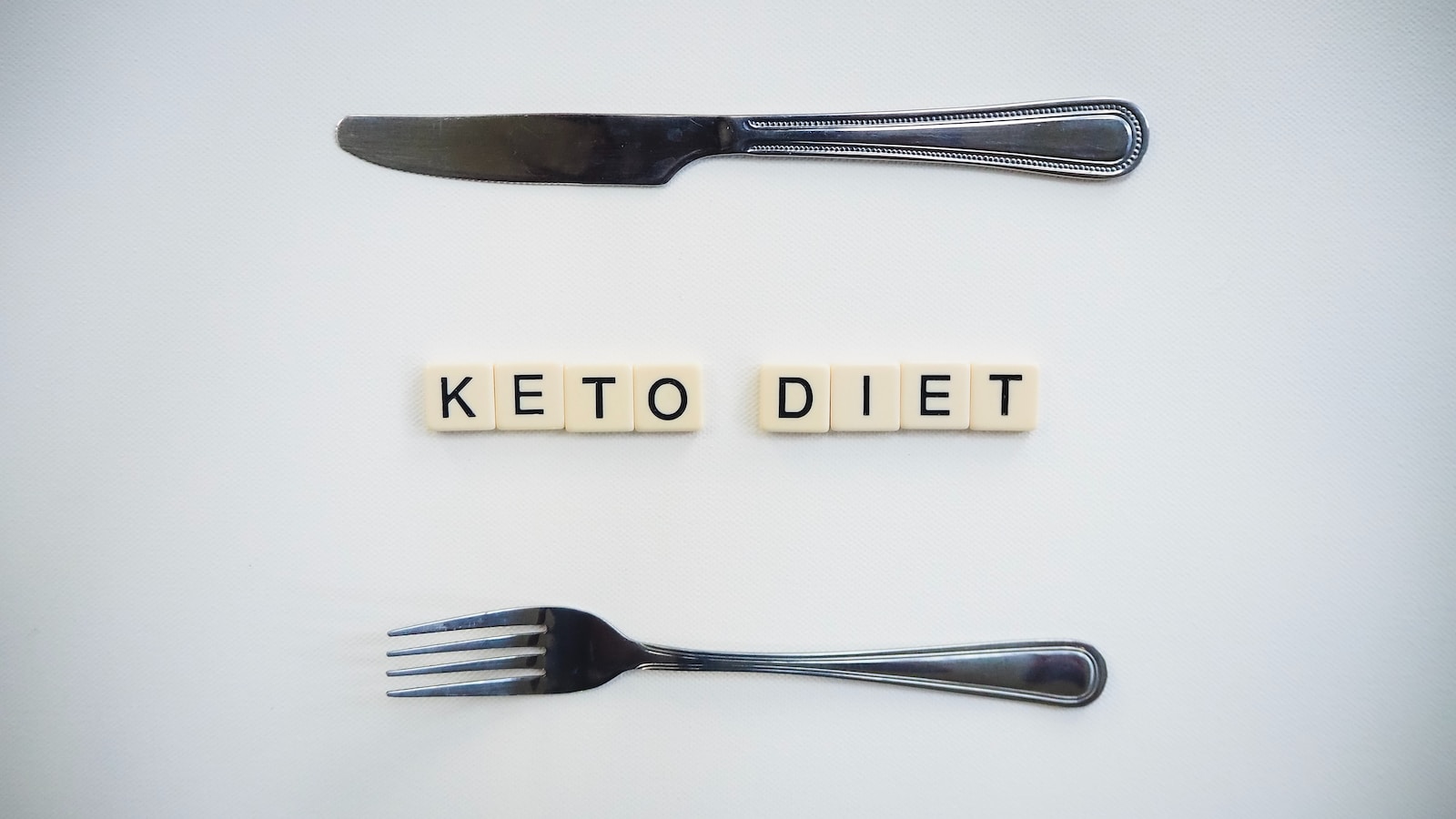
Keto Diet For Beginners: 7 Common Mistakes To Avoid
Keto Diet For Beginners: Are you just starting your Keto Diet journey and feeling overwhelmed? Don’t worry, many beginners to the Keto Diet make the same mistakes. To ensure you have the best possible start to your Keto Diet For Beginners journey, make sure to avoid these 7 common mistakes.

1) The Importance of Avoiding Common Mistakes on Your Keto Diet Journey
When starting a Keto Diet for beginners it’s crucial to avoid common mistakes to ensure long-term success. By understanding these mistakes, you can save time, effort, and frustration.
The journey to a healthier lifestyle can be challenging, especially if you are a beginner. That’s why it’s essential to arm yourself with knowledge and resources, such as The Essential Keto Diet Cookbook for Beginners 2023. This comprehensive guide offers not only delicious keto recipes but also invaluable information to help you avoid pitfalls along the way.
By avoiding common mistakes that occur when starting a keto diet, you can optimize your progress and achieve your goals more effectively. Whether it’s understanding macronutrient ratios, monitoring electrolyte balance, or prioritizing hydration, every aspect plays a crucial role in your overall success.
2) Not Understanding Macronutrient Ratios
One of the most important aspects of a successful keto diet is understanding macronutrient ratios. These ratios are the proportions of carbohydrates, fats, and proteins in your daily diet. For most people on a keto diet, the goal is to keep carbs to a minimum and increase the amount of fat and protein in your diet. This puts your body in a state of ketosis, where it begins burning fat for fuel instead of carbs.
If you’re new to the keto diet, it can be confusing to know how much of each macronutrient to consume. The key is to find a ratio that works for you and your lifestyle. A common starting point is to consume around 75% of your daily calories from fat, 20% from protein, and 5% from carbs. This can vary depending on your individual goals and needs.
One way to ensure you’re getting the right balance of macronutrients is to incorporate keto recipes into your meal plan. These recipes are designed to be high in fat, moderate in protein, and low in carbs. This takes the guesswork out of meal planning and helps you stick to your macros.
Not understanding macronutrient ratios can lead to stalled progress or even weight gain on the keto diet. Make sure you educate yourself on the proper ratios and use resources like The Essential Keto Diet Cookbook for Beginners 2023 to guide you on your keto journey.
3) Overconsumption of Protein
While it’s important to include an adequate amount of protein in your keto diet, overconsumption can be a common mistake among beginners. It’s essential to remember that the ketogenic diet primarily focuses on high fat intake, with moderate protein consumption. Consuming too much protein can lead to a metabolic process called gluconeogenesis, where excess protein is converted into glucose. This can potentially hinder your body’s ability to enter and maintain a state of ketosis.
To avoid overconsumption of protein, it’s crucial to calculate and track your macros diligently. Find a balance that works for your specific needs and goals. If you’re unsure about the appropriate amount of protein for your keto diet, consult resources like The Essential Keto Diet Cookbook for Beginners 2023, which provides guidelines and delicious recipes designed to help you stay on track.
Remember, achieving the correct balance of macronutrients is key to optimizing your keto diet journey. By being mindful of your protein intake and understanding the importance of fat as the primary fuel source, you can achieve sustainable and long-term success on your keto diet.
4) Relying Too Heavily on Processed Keto Foods
One common mistake that many beginners make on their Keto Diet journey is relying too heavily on processed Keto foods. While these convenience foods may seem like a convenient option, they can actually hinder your progress and make it more difficult to achieve your goals.
Processed Keto foods often contain additives, preservatives, and artificial ingredients that can negatively impact your health. They may also be high in unhealthy fats, sodium, and hidden sugars, which can sabotage your efforts to stay in ketosis and lose weight.
Instead of relying on processed Keto foods, it’s important to prioritize whole, nutrient-dense foods. These include fresh vegetables, lean proteins, healthy fats, and low-carb fruits. By focusing on real, unprocessed foods, you can ensure that you’re getting the essential nutrients your body needs to thrive on the Keto Diet.
To make meal preparation easier, consider using resources like The Essential Keto Diet Cookbook for Beginners 2023. This comprehensive guide provides a wide variety of delicious and easy-to-make recipes using whole, Keto-friendly ingredients. By cooking your own meals using fresh, unprocessed ingredients, you can take control of your health and optimize your results on the Keto Diet.
5) Neglecting Fiber Intake
One of the biggest mistakes that beginners make on the keto diet is neglecting their fiber intake. Many people are so focused on consuming enough healthy fats and keeping their carbohydrate intake low that they forget about the importance of fiber in their diet.
Fiber is crucial for maintaining digestive health, preventing constipation, and regulating blood sugar levels. Unfortunately, many traditional sources of fiber, such as whole grains and fruits, are not allowed on the keto diet. However, there are plenty of keto-friendly foods that are high in fiber, such as leafy greens, nuts and seeds, avocados, and low-carb vegetables like broccoli and cauliflower.
It’s important to prioritize fiber intake on the keto diet, both for the short-term benefits and long-term health. To ensure you’re getting enough fiber, try incorporating these high-fiber keto foods into your meals and snacks. You can also consider adding a fiber supplement, such as psyllium husk powder, to your diet.
By paying attention to your fiber intake, you can avoid common keto diet pitfalls and achieve optimal health and wellness on your keto journey.
6) Not Prioritizing Hydration
Staying properly hydrated is crucial for any diet, but it is especially important for those following a keto diet. When we limit our carbohydrate intake, our bodies produce less insulin, which can lead to increased urine production and ultimately, dehydration.
Many keto dieters also experience increased thirst as their bodies begin to burn fat for fuel.
Not drinking enough water can lead to a variety of negative side effects, including headaches, fatigue, and constipation. It can also impact our body’s ability to regulate temperature and properly digest food.
To stay properly hydrated on a keto diet, it is recommended to drink at least 8-10 glasses of water per day. You can also add in electrolytes, such as sodium and potassium, to help your body retain water and maintain proper balance.
Some keto-friendly options for electrolyte replenishment include broth or bouillon, adding salt to your meals, or using an electrolyte supplement. Don’t neglect your hydration needs on your keto journey, and always listen to your body’s signals for thirst and hydration.
7) Failing to Monitor Electrolyte Balance
One crucial element to consider when beginning a ketogenic diet is electrolyte balance. Electrolytes are minerals found in your body that carry electrical charges. They play a crucial role in keeping your body’s fluids balanced, muscle function, and proper nerve function. When you’re on a keto diet, you may experience a sudden drop in electrolyte levels, which can cause a variety of symptoms, such as fatigue, muscle cramps, headaches, and dizziness.
To avoid these negative effects, it’s important to monitor your electrolyte levels closely, particularly sodium, potassium, and magnesium. Many keto dieters fail to consume enough electrolytes, which can be attributed to the depletion of water weight at the start of the diet, leading to dehydration. The best way to avoid this is to increase your intake of nutrient-dense foods, such as avocados, leafy greens, nuts, and seeds.
Additionally, adding electrolyte-rich drinks, such as bone broth and coconut water, can help replenish lost electrolytes. You can also take a daily supplement to ensure your electrolyte levels stay balanced. Taking proactive measures to monitor your electrolyte balance will help you avoid symptoms and feel your best while following the ketogenic diet.
Discover all the essential information you need to kickstart your journey into the world of the Keto Diet by checking out:
Resources and Further Research:
The Positive Effects of the Keto Diet on Muscle Building: A Comprehensive Overview
Keto diets: good, bad or ugly?
You May Also Enjoy:




